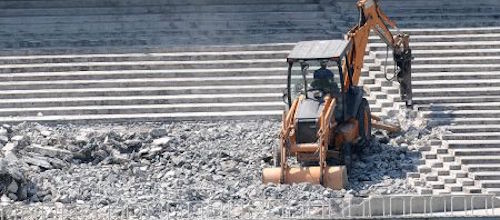Six months before the Olympics, developers take gold

In the forthcoming Power Games, politicial scientist and former US Olympic Men's Soccer Team member Jules Boykoff critically examines the history and politics of the modern Olympic Games. In the lead-up to the Summer 2016 games, Boykoff has been reporting from Rio de Janeiro on the outrages facing working class Brazilians, and the evictions, police terror, and massive transfers of tax dollars into private hands that have become a familiar pre-Olympics ritual. We present an excerpt from his latest for Folha de São Paulo below.
When Brazilian President Dilma Rousseff appeared at the Rio 2016 Organizing Committee headquarters brandishing a plaque with her “Ten Commandments of the Rio 2016 Games” — a list of social legacy-oriented good intentions – in November, the cameras dutifully snapped and flashed. The plaque was a gift from Eduardo Paes, the beer-quaffing, English-speaking, mediagenic mayor of Rio, a politician well versed in the art of the photo-op. But with the Games opening in only six months, many of those “commandments” now ring painfully hollow.
This might make Rousseff and Paes Olympic sinners. But as the Games approach, there are also real winners: well-positioned real-estate moguls, construction magnates, and perhaps Paes himself. Meanwhile, ordinary Rio residents are left with only shattered promises, with some even being forcibly displaced to make way for the Games.
These days, very few Cariocas believe the Olympic hype. In 2011, 63% in Rio thought that sports mega-events like the Olympics and 2014 World Cup would bring the city great benefits. By the end of 2015, only 27% shared that illusion.
As with much Olympics-induced public relations, the “10 Commandments” ripple with vapid prattle — one vows to “deliver a better city after the Games,” whatever that means. But some of the promises are quite specific, such as “use private money for the majority of the costs.”
This is relevant because in recent years the Olympics have been unmasked as a fiscal boondoggle, despite five-ring honchos in Rio asserting at every opportunity that taxpayer reais will make up less than half of the overall costs of the Games, with private interests paying the rest. Mayor Paes unswervingly repeats the assertion that private sources are paying for two thirds of the Rio Olympics bill.
But this statistic is extremely misleading. It fails to consider the quiet ways that Rio 2016 shifts public resources into private hands, ginning up large profits for well-connected impresarios with connections.
For starters, Rio 2016 brings enormous tax breaks. One study found that Olympic tax exemptions would be around four times higher than those of the World Cup, where tax breaks were nearly $250 million. In addition, public banks in Brazil are taking on speculative business risks to backstop Olympic projects. Also, local authorities have used the Olympics as a smokescreen to bestow valuable public land to developers at bargain-basement prices.
Nowhere has the transfer of public wealth into private hands been more brazen than in the construction of the Rio 2016 golf course. The Rio Olympics mark the return of golf to the Games after a 112-year hiatus. As was touted in Rio’s original Olympic bid, the metropolis already has two elite golf courses that have staged major tournaments. One of these could have been renovated to meet Olympic standards.
But in an audacious maneuver Mayor Paes decided to locate the golf closer to the Olympic complex in Barra da Tijuca, a wealthy western suburb, even if that meant plunking the course inside the Marapendi Nature Reserve, home to numerous threatened species.
In doing so, Paes teed up a staggering deal for billionaire developer Pasquale Mauro. As long as Mauro paid the bill for the golf course — between $20 and $30 million — he’d also win a contract to build 140 luxury apartments around it.
While the mayor’s office has pointed out the benefits of no public money being used in the construction of the site, these units start at $2 million, with penthouse condominiums pushing upwards of $6 million. It doesn’t take a math whiz to calculate the value of this multi-million dollar sweetheart deal, gift-wrapped by City Hall.
If the Olympics are all about real estate, Exhibit B has to be the Olympic Village. Built by Brazilian construction behemoth Carvalho Hosken, the Village will be converted after the Games into a luxury-housing complex called “Ilha Pura” (“Pure Island”). But Ilha Pura isn’t even an actual, geophysical island. Carlos Carvalho — founder of Carvalho Hosken and campaign donor to Mayor Paes — explained to The Guardian that the name in fact referred to a “social island,” saying that he wanted to create “a city of the elite, of good taste…For this reason, it needed to be top class housing, not housing for the poor.”